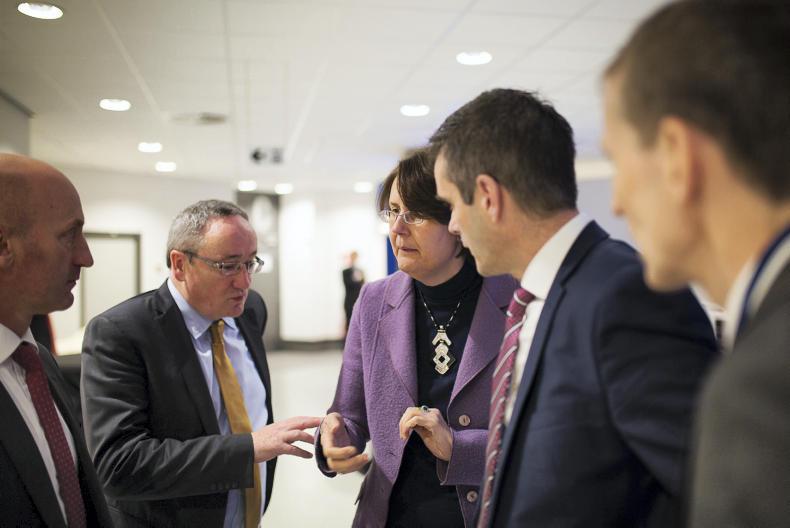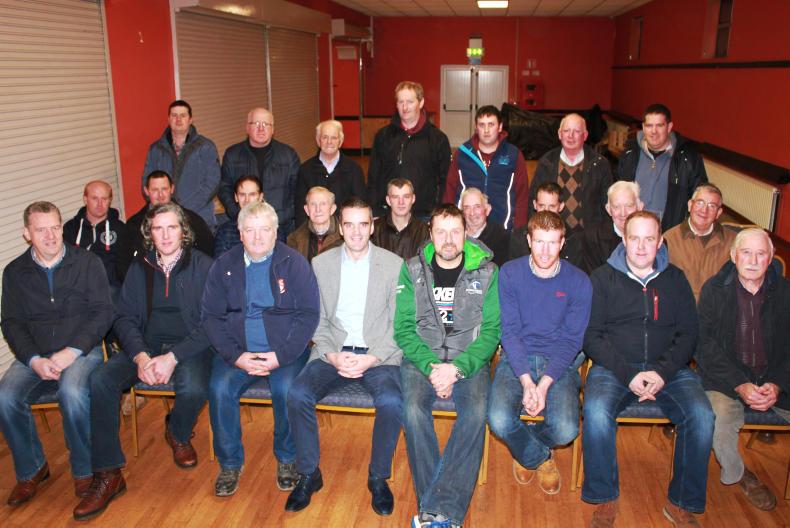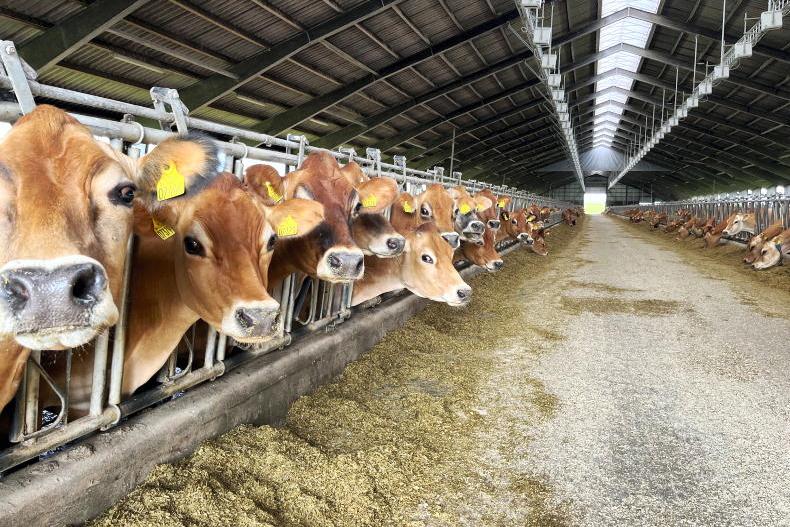An increased budget is essential for the future CAP to be effective, IFA president Joe Healy told Commissioner Phil Hogan during a meeting in Brussels last week.
Reacting to the Commissioner’s communication on the future of food and farming, Joe Healy said: “If we don’t have farmers, we don’t have food. Low farm income in many sectors remains the most significant challenge to the sustainability of farming enterprises across the EU, and in attracting new entrants into farming.
“The CAP post-2020 must deliver a fair standard of living for farmers, with an overall improvement in income levels. In addition, Europe must show solidarity with farmers over Brexit by making up the shortfall in the CAP budget arising from the departure of the UK from the EU.”
He said: “In contrast to the economic landscape of the last CAP reform, we are in the position now where the EU economy is growing again. In this environment, securing an increased budget to deliver a positive CAP reform must be the key priority.”
Concerned
Healy said he was concerned about a reference in Commissioner Hogan’s paper on the Future of Food and Farming that the EU budget will have to do more to meet new challenges and that the CAP will have to be looked at in this context.
“The CAP budget cannot be raided; any new EU initiatives must be funded by new money,” he said.
The IFA president welcomed Commissioner Hogan’s strong commitment to future direct payments under the CAP post-2020. He said retaining the two-pillar model of CAP is critical and he welcomed the new reference to this in the latest document.
“The Rural Development Programme, with its diverse range of flexible instruments, is vitally important in supporting targeted programmes that reflect the different economic, social and environmental circumstances in member states.”
The IFA president said in setting the key policy parameters of the CAP post-2020, Commissioner Hogan has a real opportunity to ensure that direct payments strongly support active farmers, based upon relevant and objective criteria.
Joe Healy said the delivery of environmental public goods and enhanced production standards have a real value and this must be reflected in the direct payments farmers receive in the next CAP.
Christmas retail campaign
IFA is running a campaign encouraging consumers to buy Irish food and to not be lured by unsustainable discounting by retailers this Christmas. The campaign encourages consumers to check twice and ensure they’re not misled by labelling.
Check out www.ifa.ie for materials you can share with family and friends to make sure they’re informed about the labels to look out for.
Heritage Bill
Heritage Bill proposals to extend the periods during which hedge-cutting and gorse burning are permitted will give farmers necessary flexibilities to properly manage hedgerows and uplands, IFA national hill chair Pat Dunne told the Heritage Oireachtas Committee last week. He made the point that gorse burning restrictions impact on grazing land available, while the excessive hedge-cutting closed period impacts on farm safety and road safety.
Factory grading
Livestock chair Angus Woods has advised farmers to carefully check grades when selling to the factory, and if they are not satisfied to contact the plant or the IFA to have the grades checked.
The IFA has demanded that Department of Agriculture officers are given the responsibility to constantly monitor carcase trim and classification – this is a commitment that must be honoured.
GLAS payments
With 85% advance GLAS payments for 2017 commenced, rural development chair Joe Brady has said it is important that all 50,000 farmers in the scheme receive their payments quickly over the coming weeks.
He reminded any farmer who has not yet submitted their nutrient management plans, or other due documentation, to do so immediately as this will trigger payments.












SHARING OPTIONS